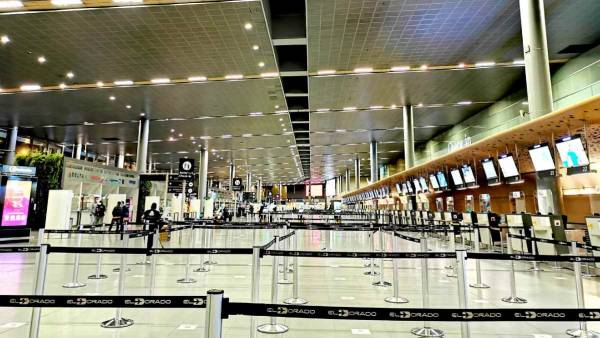Amid the current disruption, industry experts examine what this new year holds. Navigating disruption and uncertainty is now a standard in a world that continues to face economic and political challenges. From concerns about the productivity of a hybrid workforce and how to gain an advantage with artificial intelligence, to the current conundrum of what to do with office buildings heading for obsolescence, investors and corporate occupiers have plenty to think about.
The leaders of Real Estate at the multinational JLL, explain it below...
Does the hybrid really work?
Currently, the hybrid work modality is present in most companies. Before the pandemic, few companies thought that the implementation of such a modality would be possible. Years after the great experiment of this work model, many companies are evaluating its effectiveness and whether it aligns with the desired results.
The main challenges that most companies have encountered are related to productivity (Is the hybrid model improving productivity?) and culture (Do we lose a sense of belonging when we are not always in the office?).
According to recent research by JLL, the lack of metrics to evaluate both factors is one of the main reasons why employers encourage people to work from the office. "Maximizing collaboration and innovation within the office helps improve productivity, enables knowledge sharing, and generates a sense of belonging that companies feel they have lost," says Gabriella Silva, Director of Change Management at JLL. "They see it as a significant contributor to employee performance and talent retention."
However, there are conflicting issues from the employees' point of view. Nearly half of the workforce believes they are more productive at home. They also cite issues such as "office noise and lack of privacy are major issues that discourage many employees from returning," says Gabriella. "People say they just can't concentrate and it affects their work."
The answer, then, is to work on deciphering and understanding expectations of workforce performance. A big part of this will be the creation of offices that support the work of a hybrid workforce. Silva suggests that office usage data and human-centered design are key to deciphering what an "ideal office" should look like.
Will AI move from hype to habit?
AI, and the future it has come to represent, is here to stay and in a disruptive way. It's creating a job boom for related skills. Real estate industries, such as data centers, have expanded on the back of growth expectations.
But as the initial enthusiasm fades, organizations are scrambling to figure out how to fully leverage technology to drive their future goals.
There is no lack of conviction on the part of investors, developers and occupiers, who agree that it is among the three main technologies that will change the rules of the real estate game in the coming years, especially to decarbonize the real estate sector.
"It's becoming the norm to use AI to simplify working with complex data, whether it's financial, contractual, or the vast data sets generated by smart buildings, as well as to make the portfolio more efficient with data," said Ariel Castillo, CTO at JLLT. "Companies across industries are definitely exploring how AI can drive efficiencies."
However, he warns that as the use of AI becomes more common, companies need to be aware of the various regulations on AI that continue to emerge around the world, regarding data quality, intellectual property rights, privacy, and data security.
Will there be enough net-zero offices?
The demand for real estate that helps organizations reach their net-zero carbon (NZC) goals is increasing. But for now there isn't enough space, especially in the office sector, to accommodate everyone.
In the U.S., the supply of low-carbon workspaces will be less than 57 million square feet by 2030, while no city in the Asia Pacific region has an adequate supply. In Europe, low construction demand in New Zealand is outstripping supply by a factor of three to one.
"The gap between supply and demand is only going to widen," says Guy Grainger, Global Head of Sustainability and ESG Services at JLL. "It's creating opportunities for forward-thinking developers and investors to consider retrofitting existing office buildings with the prospect of higher rents in the near term and protecting value in the long term."
Grainger points out that the business case for sustainable buildings has never been stronger. "Rising costs stemming from climate risk, increased tenant demand, tighter regulation, and restrictive financing point to investment in decarbonization as the smart long-term strategy," he says.
What's next for real estate investing?
In recent years, real estate investing has undergone a transformation marked by the reallocation of capital, a decrease in the volume of transactions in the capital market, and less focus on speculative developments due to uncertainty.
"The period of high interest rates has resulted in lower asset development in several segments, and while a gradual normalization of monetary policy is expected in major economies in 2024 and 2025, its effect will take a couple of years to be passed on to the real estate market," says Rodrigo Torres, Director of Research NLA JLL. "In the near future, this will be reflected in above-inflation rent increases even in assets whose structural demand has been affected, such as offices, and to a greater extent in segments where demand has been held back by supply, such as logistics and industrial assets."
This scenario represents an opportunity for investors with a certain appetite for risk and low leverage needs, says Torres. "On the other hand, emerging segments such as data centers and rental housing continue to mature, which will continue to expand the portfolio of real estate investments in the region."
Will investors become transformers?
As office vacancy rates reach an all-time high and housing shortages abound, investors and homeowners are wondering what to do with buildings that are no longer at their best. Turning these spaces into apartments, life sciences labs, luxury hotels, data centers, or even vertical farms are becoming increasingly attractive options.
"With many buildings now obsolete – if not already out of use – and others simply failing to generate adequate returns, conversions are increasingly at stake," says Juan Rengifo, Senior Director of Project Management at JLL. He adds that as more reuse projects are completed, developers gain valuable experience. Funding is also becoming easier to come by.
"The environmental and social benefits are now clear, while future financial rewards are driving investor confidence in the emerging business case for adaptive reuse strategies," Rengifo says.
Is experience taking over workspaces?
Facility Management plays a crucial role in creating positive experiences for users in their workspaces, taking into account aspects such as proper maintenance, with the prevention of any problems that may negatively affect the user experience, security and comfort with measures that make them feel comfortable and worry-free. For Gabriela Sikora, Director of Facility Management SLA at JLL, another important point is operational efficiency, optimizing operations in workspaces. This involves the efficient management of services, such as cleaning, maintenance, waste management, energy supply, among others. By ensuring a smooth and efficient operation, it improves the experience of customers when working in their spaces.
For Sikora, the personalization of spaces is the great challenge in 2024, Facility Management can help customize workspaces according to the needs and preferences of customers. This involves adapting the layout of the spaces, as well as providing additional services, such as rest areas, equipped meeting rooms, catering services, among others. This personalization contributes to improving the customer experience and strengthening customer satisfaction.
Sikora mentions that JLL focuses on developing the soft skills of our facilities, since through these we can have the sensitivity to "read" whether or not the workspaces are responding to the needs of the people who work in the companies we manage. Emotional intelligence has also gained great strength post-pandemic, and has become another important skill to be able to develop empathy. JLL thinks about effective spaces that respond to people's real needs.



























Leave your comment